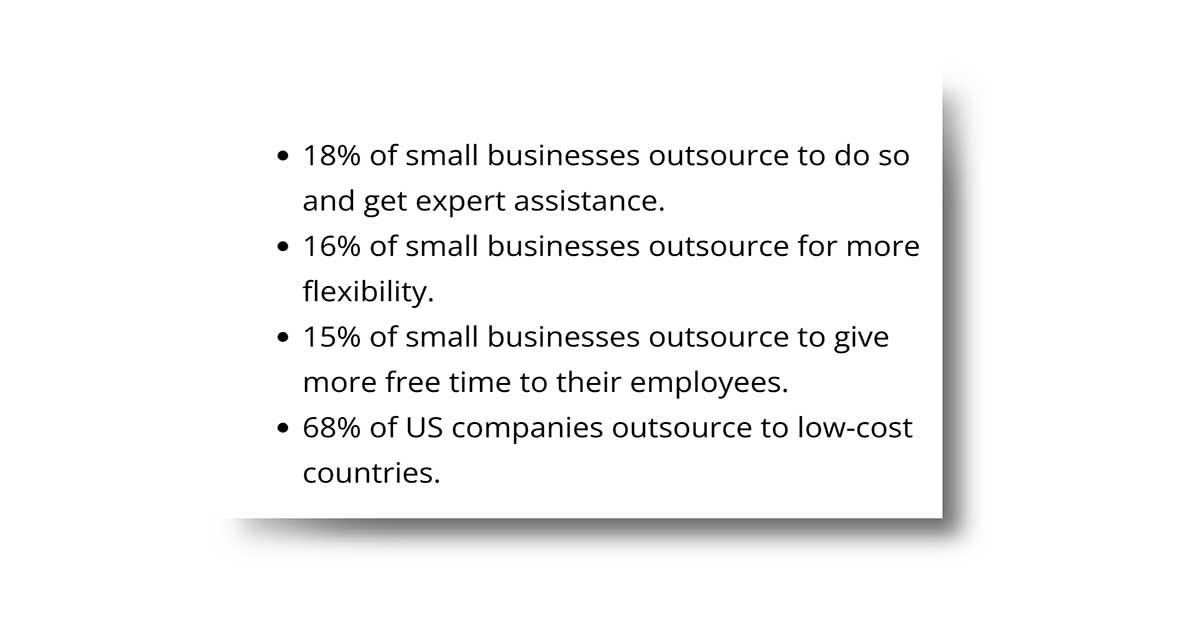Outsourcing has become an integral part of modern business strategies. It involves contracting out certain business functions or processes to third-party providers. Understanding its key aspects is crucial for companies aiming to optimize their operations and growth. Here are some essential facts about outsourcing:
1. Cost Efficiency
Outsourcing often leads to cost savings by leveraging lower labor costs in different regions. Companies can reduce expenses related to salaries, benefits, and infrastructure by outsourcing to countries with lower labor costs.
2. Access to Specialized Skills
One of the primary reasons for outsourcing is gaining access to specialized skills not readily available in-house. Companies can tap into a global talent pool, accessing expertise that may not be locally accessible.
3. Focus on Core Activities
Outsourcing non-core functions allows companies to concentrate on their core competencies. Delegating tasks like IT support, customer service, or payroll processing enables businesses to prioritize their core activities and strategic goals.
4. Enhanced Flexibility
Outsourcing offers flexibility in scaling operations. Businesses can easily expand or contract their outsourced services based on their current needs without the complexity of hiring or downsizing internal teams.
5. Global Market Reach
By outsourcing certain operations, companies can establish a presence in international markets more efficiently. This can aid in understanding diverse customer needs and expanding the business globally.
6. Risk Mitigation
Sharing responsibilities with a specialized outsourcing partner can help mitigate certain business risks. Providers often bring industry expertise and compliance knowledge, reducing the risks associated with handling certain tasks in-house.
FAQs about Outsourcing
What types of tasks can be outsourced?
Virtually any non-core business function can be outsourced, including customer support, software development, accounting, marketing, and manufacturing.
Is data security a concern in outsourcing?
Data security is a significant concern. However, reputable outsourcing firms implement robust security measures to safeguard sensitive information.
How can a company choose the right outsourcing partner?
Research extensively, assess the partner’s experience, expertise, security protocols, and client testimonials. Communication and cultural compatibility are also crucial.
Does outsourcing only benefit large corporations?
No, small and medium-sized enterprises (SMEs) also benefit from outsourcing as it allows them to access expertise and resources they might not afford in-house.
Can outsourcing negatively impact local job markets?
While it can shift certain jobs overseas, outsourcing can also create new opportunities and stimulate local job markets through cost savings and business growth.
Outsourcing continues to evolve as technology advances and businesses adapt to changing market dynamics. Understanding these key facts empowers companies to make informed decisions and leverage outsourcing to their advantage.
Related Article:
This page was last edited on 9 January 2024, at 12:43 pm
How can we help you?
























